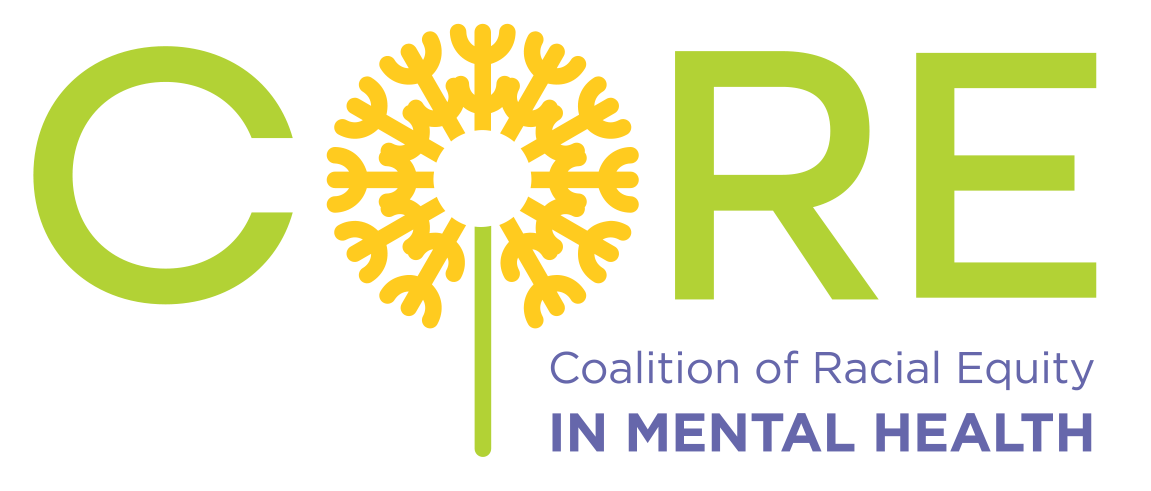Core Fellows Program
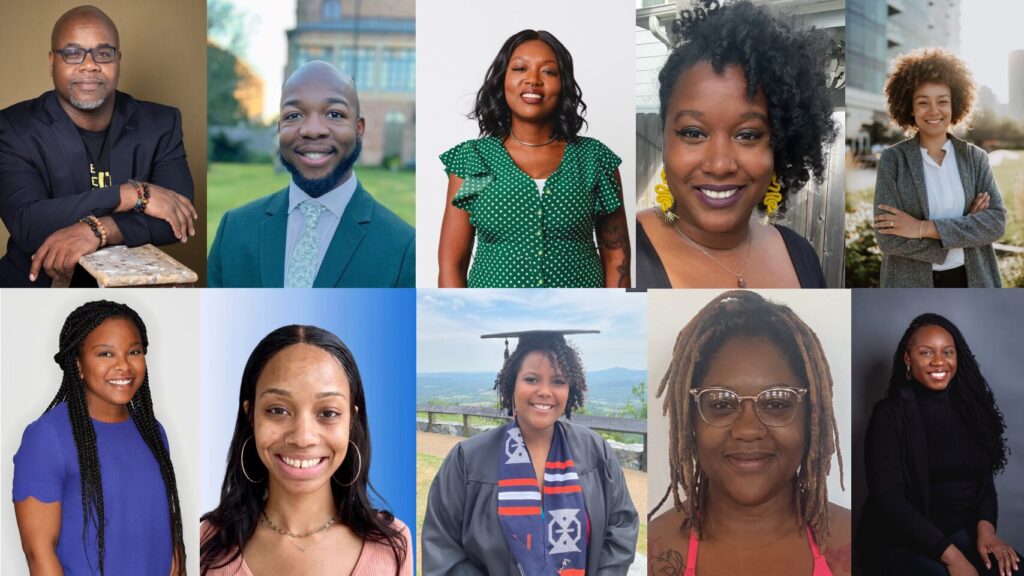
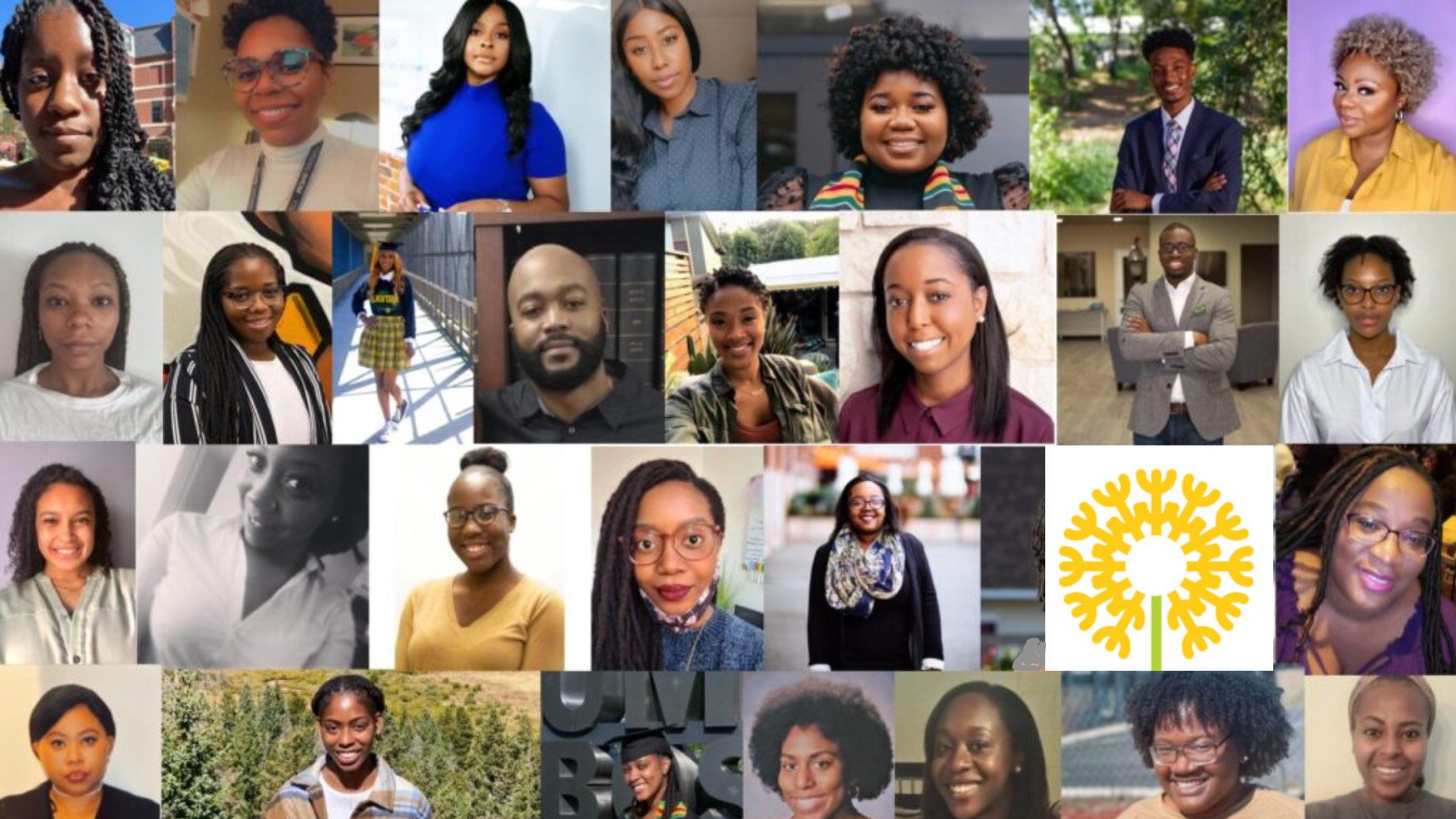
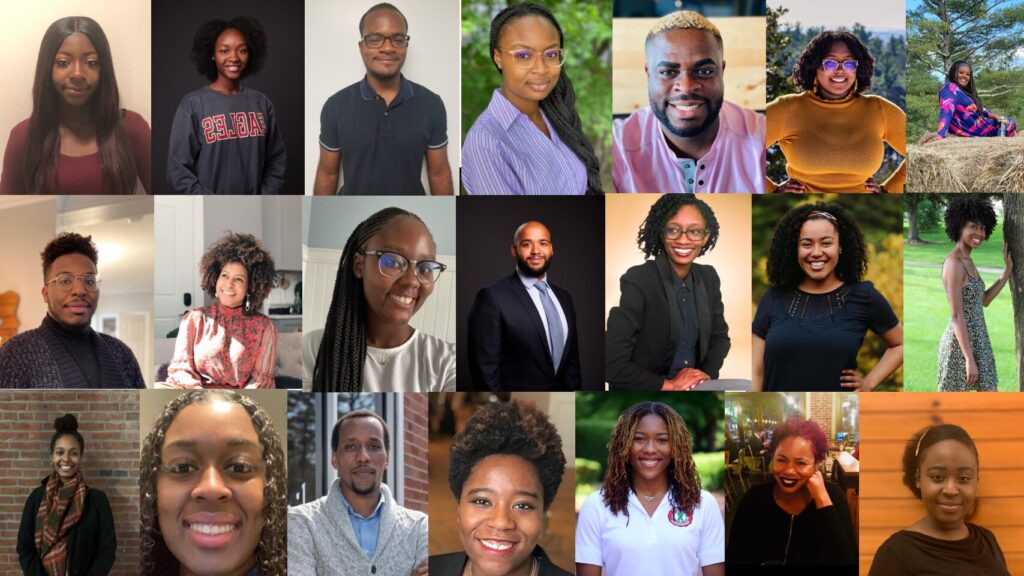
Core Fellowship Program
CORE has funded 63 Fellows between 2020-2022 (pictured above). This fellowship is being offered in recognition of the need for more Black/African American identifying individuals in the mental health field and the barriers presented by the requirement of unpaid internships paired with the significant wealth gap for Black/African American people. CORE Fellows receive $2000 each, and are connected with Black leaders in the mental health field. Learn more about the Fellows HERE.
Core Mental Health Case Studies
Case Study: Supporting the Work of Black Mental Health Providers
CORE’s latest case study draws upon the learnings from conversations with CORE Fellows (Black graduate students in mental health) on the challenges of working in predominantly white workplaces. The case study, authored by Mel Martin, outlines the related challenges and opportunities for institutions – much of which is relevant to the work of Black professionals in other fields. Contact the CORE Planning Director, at director@core-mental-health.org to receive the case study.
Case Study: Racial Equity Learning Community
Since 2017, CHNA17 has hosted Racial Equity Learning Communities (RELC) as a safe space to discuss systemic racism in members’ institutions and how to move forward with the goal of furthering racial equity. The goals of the Racial Equity Learning Community is to build a community of providers centering racial equity and support problem solving and dissemination of innovative practices. This case study focuses on one concept emerging from our racial equity learning community — the myth of leaving the learning phase — and an outline of the structure we use so that others may adopt any pieces that might be helpful in their own racial equity conversations.
View CHNA17 Case Study
Case Study: White Dominant Culture
After completing an assessment on mental health and racial equity for our region, CHNA 17 committed to working on dismantling racial inequities from the inside out by doing a “white supremacy culture” audit at every steering committee meeting. The goal was to understand white supremacy’s deep impact on our work, particularly how it impeded our efforts to build more racially equitable communities. By doing these audits, we recognized that we had inherited and were a part of a pervasive system of racial inequalities.
View CHNA17 Case Study
Case Study: Agassiz Baldwin
In the spring of 2017, Community Health Network Area 17 (CHNA 17) implemented a new grant initiative to build capacity for organizations and the region to operationalize equity. CHNA 17 has had the long-term goal of creating a network of racial equity leaders, and thus, this funding initiative was integral to achieving this goal. Agassiz Baldwin Community was one such organization that sought to make policy and programmatic changes to increase racial equity.
View CHNA17 Case Study
Case Study: The Portrait Project
In this spotlight, Steering Committee member and Transition House Community Liaison Shameka Gregory, LICSW, describes the Portrait Project, Shameka’s brainchild, which involved posting images of people of color alongside the ubiquitous portraits of white men in our offices, and institutions. If you want more information on how to do this at your work place, email director@core-mental-health.org. View CHNA17 Case Study
Case Study: Dealing with Hate and Bias in Youth Programs; an After-school Project.
Last year, CHNA17 funded three after school programs to address hate/bias using the Teaching Tolerance “A Guide for Administrators, Counselors and Teachers – Responding to Hate and Bias at School” The grantees also participated in three two-hour learning communities where they explored challenges and successes with their peers. The aim of this project was to build capacity for after-school programs to operationalize equity and address bullying, specifically hate and bias-related incidents and document best practices in operationalizing racial equity for our region. View CHNA17 Case Study
Core Annual Report
Take a look at our Annual Report to see the impact that our work had and the areas we want to continue to build on in the future.
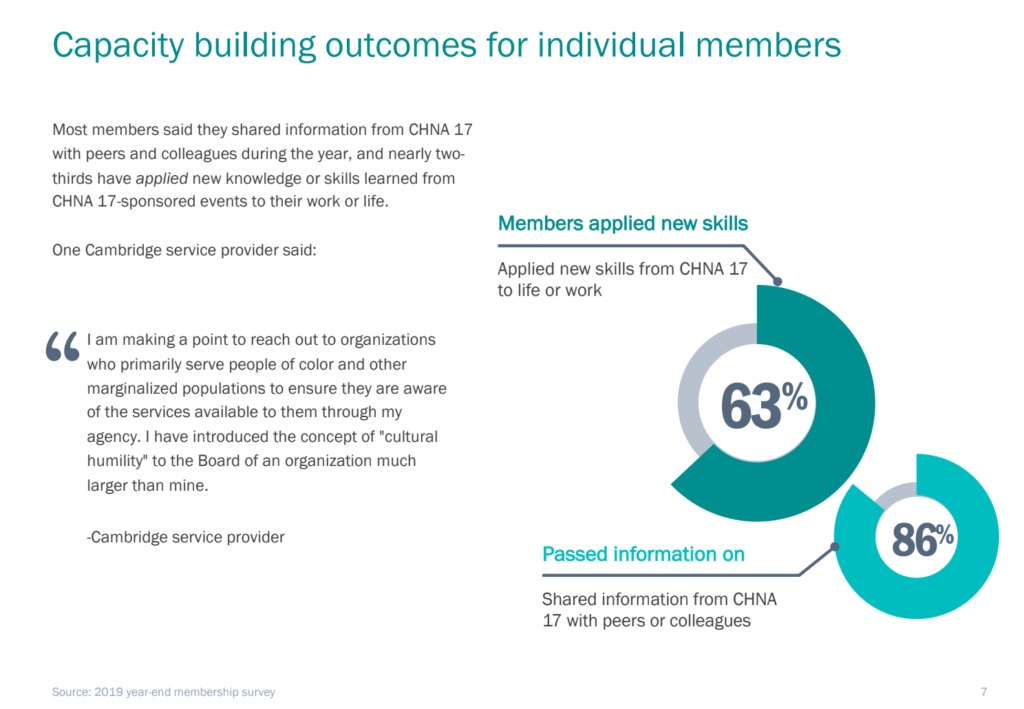
CHNA17 Video – The Disruptors: Mental Health Starts with Us
CHNA17 has funded dozens of initiatives over the past several years. In an effort to disseminate learnings, we have pulled together the stories of three innovative mental health efforts here in this video.
Sister to Sister Video Companion Piece
